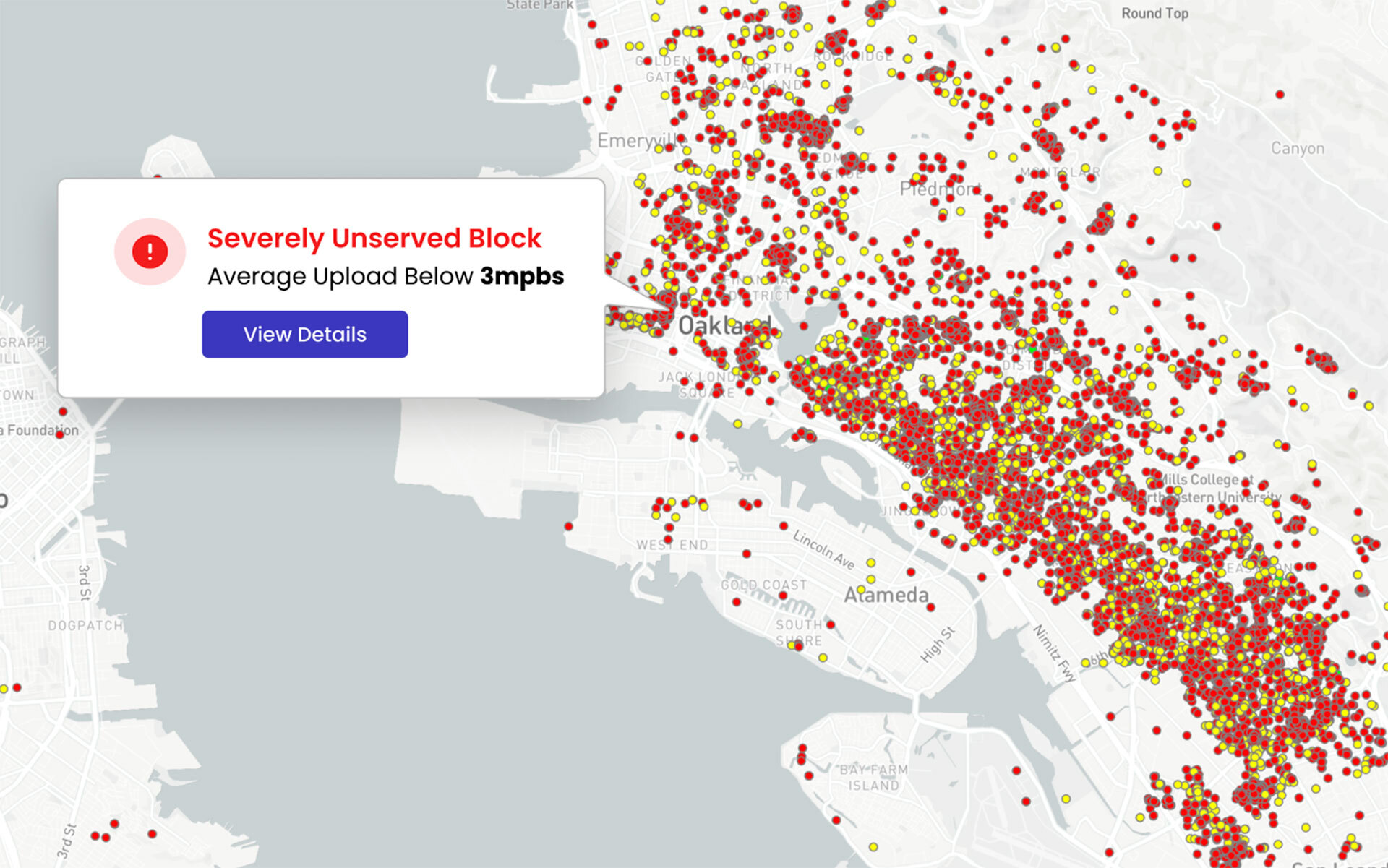Even now, in an age when most of us use the Internet, one in five Californians lack reliable and affordable service. Most are lower-income people of color and rural residents.
This afternoon in Sacramento, the Assembly Communications & Conveyance Committee takes up the latest salvo in this struggle, a bill designed to chip away at this form of digital discrimination.
“We are living in an unjust and inequitable moment of technology, where some have and some don’t” Assemblymember Mia Bonta, D-Oakland, who authored AB 2239
The author of AB 2239 said it would make California the first state in the nation to codify the Federal Communication Commission’s newly adopted definition of digital discrimination into state law.
“We know that equitable access to fast, reliable and affordable Internet is a non-negotiable part of everyday life,” she said.
The FCC’s new rules adopt a “disparate impact” standard for identifying digital discrimination, meaning broadband providers could be in violation, even if they are not intentionally withholding adequate Internet from a protected group.
“The disparate impact standard has long been applied in education, in housing and health care, and more. And what this bill is doing is essentially saying it also needs to be applied to broadband access,” Bonta said. “Regardless of the inputs that you have around broadband intent and the different programs that we set up if there is a disparate impact — and we know that there is — then that’s considered discrimination.”
Catch up fast:
“It’s not acceptable to have a California where such an essential infrastructure is not equally accessible to all Californians,” said Miguel Santana, president and CEO of the California Community Foundation.
“The most common criticism I’ve heard is that [AB 2239] is not necessary because there is no intention to discriminate. And that the industry has implemented a number of programs to help create access to low-income, marginalized communities,” Santana said.
“The outcomes speak for themselves,” he added, referencing the fact that researchers and activists say low-income Californians pay more for worse service than those in wealthy neighborhoods because there’s often no competition in poor neighborhoods to compel Internet providers to compete on service and price.

The context:
The advocacy group Oakland Undivided recently partnered with remote technology performance management company, Hubble IQ, to run nearly half a million speed tests across Oakland.‘The facts of the digital divide in California are stark. Race and income are the best predictors of whether you have access to the Internet in your neighborhood, how reliable it is and what you pay for it.’Patrick Messac, director, Oakland Undivided
“Over 75% of the Internet connections we tested never reach the speed threshold to be considered served,” said Oakland Undivided director Patrick Messac. “The facts of the digital divide in California are stark. Race and income are the best predictors of whether you have access to the Internet in your neighborhood, how reliable it is and what you pay for it.”
The big picture:
“In many cases, I would say that discrimination is often not per se the intent. Maximizing profit and delivering value to shareholders is the intent,” Tracy Rosenberg of Media Alliance wrote. The advocacy group is a party to the 8th Circuit proceeding where the FCC’s rules, which AB 2239 aims to align with at the state level, are being challenged.
“Because of history, market conditions and existing societal divides, the intent of maximizing shareholder value leads inexorably to actions that exacerbate digital inequity,” Rosenberg added.
The opposing view:
Contacted for comment, a spokeswoman for Charter Communications’ company, Spectrum, responded that it is still reviewing the legislation but that “Spectrum Internet plans, download speeds and regular prices are not only exactly the same in every ZIP code we serve in California but also across our entire 41-state service area.”
How to Find Free or Lower-Cost Wi-Fi in the Bay Area
AT&T, another major player in the state, referred KQED to Cal Chamber, which lobbies on behalf of the broadband industry. In a letter to the Assembly Communications & Conveyance Committee, which is hearing AB 2239 on Tuesday, Cal Chamber argued, “We do not want to repeat the FCC’s mistakes in California, which would risk provoking costly litigation and delaying the deployment,” of ongoing universal connectivity programs.
The bottom line:
This early in the legislative session, it’s hard to anticipate whether the bill will survive or how its language might be changed in the coming months to mollify industry-backed critics or forestall lawsuits.
But Bonta said that if her bill becomes law, California will send a clear signal to the rest of the country to consider Internet connectivity as a social justice issue.







